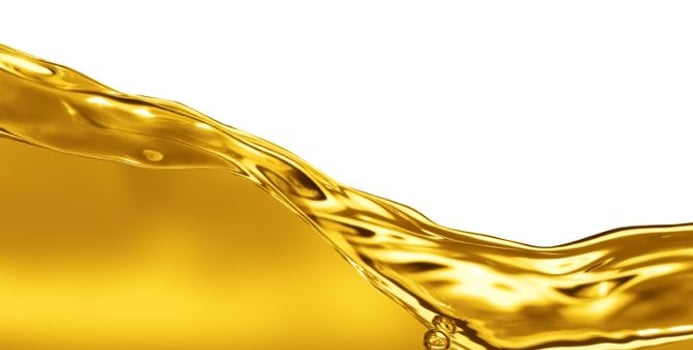There are many types of vegetable oil used for cooking and adding to food. Taking into consideration the calorie, fat and other nutritional value of vegetable oils is the best way to choose them. Below are a few of the most popular oils used. NOTE: You will notice that many oils have a similar fat/calorie content. Keep in mind that these are just numbers and that the refining process (explained below) is the real culprit of how your body reacts to the oils.
Flaxseed Oil
- 1 tbsp. = approximately 120 calories / 13 grams of fat
This is considered one of the best sources of non-animal omega-3 content. It is also excellent in relieving constipation, as well as maintaining a healthy heart and skin. It spoils quickly and should not be used for cooking.
Canola Oil
- 1 tsp. = approximately 40 calories / 5 grams of fat
Low in calories and fat, this oil is not only heart friendly, but also contains omega-3 as well as omega-6.
Soybean Oil
- 1 tsp. = approximately 40 calories / 5 grams of fat
Similar in omega, calorie and fat content to canola, soybean oil is often highly refined which makes it much harder for the body to assimilate.
Olive Oil (Virgin or Extra Virgin)
- 3.5 oz. = approximately 800 calories / 100 grams of fat
Three ounces is not much when cooking with olive oil. This is why Mediterraneans stay so healthy. This oil, derived from the olive skin, is loaded with vitamin A, K and omega 3 and 6. It is heart healthy and should never be overheated, as this has been linked with possible free radicals.
Corn Oil
- 1 tsp. = approximately 40 calories / 5 grams of fat
Usually highly refined, this oil is an excellent source of omega-6.
Peanut Oil
- 1 tsp. = approximately 40 calories / 5 grams of fat
Peanut oil is high in saturated fat, but not as bad as animal oils. It can be cooked at high temperatures.
Cottonseed Oil
- 1 tsp. = approximately 40 calories / 5 grams of fat
Often hydrogenated, this oil is high in saturated fat and often contains pesticide residue.
Palm Oil
- 1 tsp. = approximately 40 calories / 5 grams of fat
Palm oil has a highly saturated fat content, as well as over refined oil, contributing to high cholesterol.
Coconut Oil
- 1 tsp. = approximately 40 calories / 5 grams of fat
This tropical oil is the least heart healthy and is mostly used in candy and other sweets. It too contributes to high cholesterol.
Know the Process
- Trans Fats (Hydrogenated or Partially Hydrogenated)- this process is heating vegetable oil to become a buttery solid or semi-solid (partially hydrogenated). This chemical manipulation makes trans fats attach themselves to cell walls, allowing free radicals to enter the cell, opening up potential for disease. Examples of trans fats are: vegetable shortenings, candy, baked goods and some margarine.
- Monounsaturated - usually derived from nuts, avocados and seeds, these oils are probably the most healthy and are often associated with lowering the potential for heart disease.
- Polyunsaturated - Omega-3's are common in these oils, and it can be stored at room temperature or refrigerated. This is another excellent source of vegetable oil and is usually found in flaxseed, sunflower, corn, soybean and walnuts.
- Saturated - This process raises your LDL cholesterol (bad cholesterol), increasing the potential for heart disease. Saturated fats are usually found in tropical vegetable oils such as coconut or palm oils.



